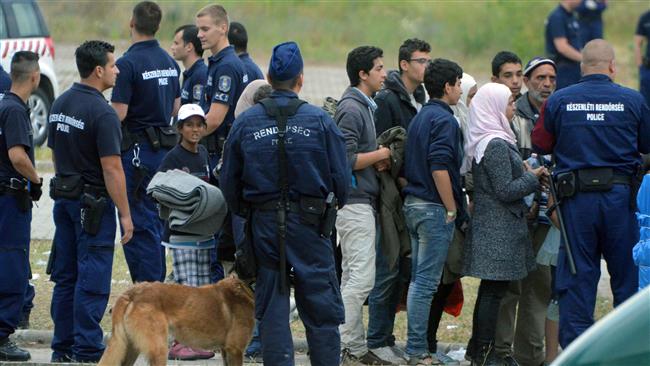
RNA - “We don’t consider these people to be Muslim refugees,” said Orban during an interview with Germany-based Bild newspaper published Monday, rather calling them “Muslim invaders” merely motivated by economic reasons.
Orban — who has repeatedly rejected the validity of the refugees’ humanitarian plight and once referred to groups of refugees as “a Trojan horse for terrorism” — further said the asylum seekers cross four countries from war-ravaged Syria to reach Hungary, none of which are as wealthy as Germany but remain economically stable.
“So, they are not running for their lives. They are merely economic migrants seeking a better life,” he said, admitting, however, that he was only speaking for Hungarians who “don’t want” immigration.
He further claimed that multiculturalism was only “an illusion,” as Christian and Muslim societies “will never unite.” He said the presence of a large number of Muslims would lead to the emergence of “parallel societies,” which he said did not exist in his country’s capital of Budapest due to the low numbers of refugees.
“The reason why people are in your country (Germany) is not because they are refugees, but because they want a German life,” Orban told Bild, referring to the issue as a “political” one for Europe and a “sociological” one for Germany.
He targeted Germany and Chancellor Angela Merkel’s “open-door” policy toward refugees, saying, “I’ve never understood how chaos, anarchy, and illegal border crossings are viewed as something good in a country like Germany, which we view as the best example of discipline and the rule of law.”
Europe has faced an influx of refugees arriving from conflict zones since 2014. Many of the refugees have been fleeing wars and conflicts either directly waged or exacerbated by Western countries.
While Germany originally welcomed the refugees, it gradually imposed certain restrictions on the numbers of asylum seekers who could stay in the country.
In an attempt to justify his description of the flow of refugees to Europe as an “invasion,” Orban said, “If someone wants to come to your house, he knocks on your door and asks: ‘Can we come in, can we stay?’ They (the refugees) didn’t do that, they crossed the border illegally.”
Last month, Budapest, along with Poland and the Czech Republic, defended its “right” to reject EU-imposed refugee quotas amid pressure from the European Commission (EC). Despite repeated EC warnings, the three countries continue to pursue a course of non-compliance, arguing that refugees pose a direct threat to public security.
In September, Hungary also claimed that fences erected on its borders with Croatia and Serbia had helped slash the inflow of refugees by over 99 percent since 2015. The country’s border fence has been repeatedly censured by other European states, as well as by EU politicians, though Budapest has resisted pressures to remove it.
847/940